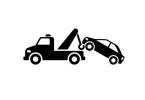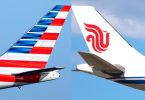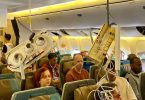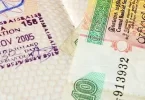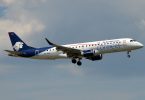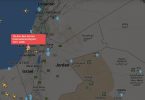Lack of sops in the 2008 Budget has pushed loss-laden airline industry into dejection zone, but civil aviation minister Praful Patel continues to be hopeful of getting them a decent deal by pursuing states to reduce sales tax on aviation turbine fuel (ATF). The civil aviation ministry had sought inclusion of ATF in the list of declared goods so that states cannot levy more than 4% sales tax.
With the 2008 Budget remaining silent on the issue, the airline industry’s hopes of lower input costs stands dashed. This is despite the fact that The Economic Survey acknowledged that losses incurred by domestic carriers are mounting. The combined and cumulative losses of airlines during 2006-07 was about Rs 2,000 crore which is expected to go up to Rs 2,800 crore in the current fiscal.
Reacting to the Budget, UB Group president and CFO Ravi Nedungadi said: “The budget was a big disappointment as the old mindset still persists that air travel is a luxury in India. This mindset hasn’t changed at all.” The UB Group, owned by Vijay Mallya, runs the full service carrier Kingfisher Airlines.
Domestic airlines are operating under extreme margin pressure, thanks to stiff competition, leading to low airfare and hence lower yield. The situation is more aggravated on account of high fuel price which is nearly 40% of an airline’s total operating cost. In view of the high fuel prices, airlines have been working on uniform fuel surcharge despite their competition. The fuel surcharge was hike several times last year and some airline continue charge a congestion surcharge as well despite objections form the civil aviation ministry.
In a pre-budget communication to the civil aviation ministry, a finance ministry official had said that ATF cannot be added to the list of declared goods without building consensus among state governments. “No state has so far indicated positively for bringing ATF in the fold of declared goods thereby attracting an uniform 4% sales tax,” he said. No wonder the Budget did not have any announcement on reducing the tax burden on ATF.
Civil aviation minister Praful Patel, who had several meetings with finance minister P Chidambaram in the run up to the 2008 Budget, is still hopeful. “We would continue to pursue finance ministry and states for rationalising taxes on ATF,” he said after the Budget.
Airlines have pointed out that the 2008 Budget remained silent on all major concerns of the aviation industry except removal of import duties on helicopter simulators. The move would make helicopter pilot training a little cheaper.
“The airline industry in India, a country which is set to become the third largest economy in the world, is still not accorded the infrastructure status. All other modes of connectivity like airports, ports, railways are given infrastructure status except air travel in India,” Air Deccan founder Capt G R Gopinath said. Though GoAir MD welcomed the government’s move to pay more attention to common man’s issues, he was disappointed over the negligence of aviation sector’s demands.
economictimes.indiatimes.com
(eTN): Airlines pushed into dejection zone | re-post license | post content








